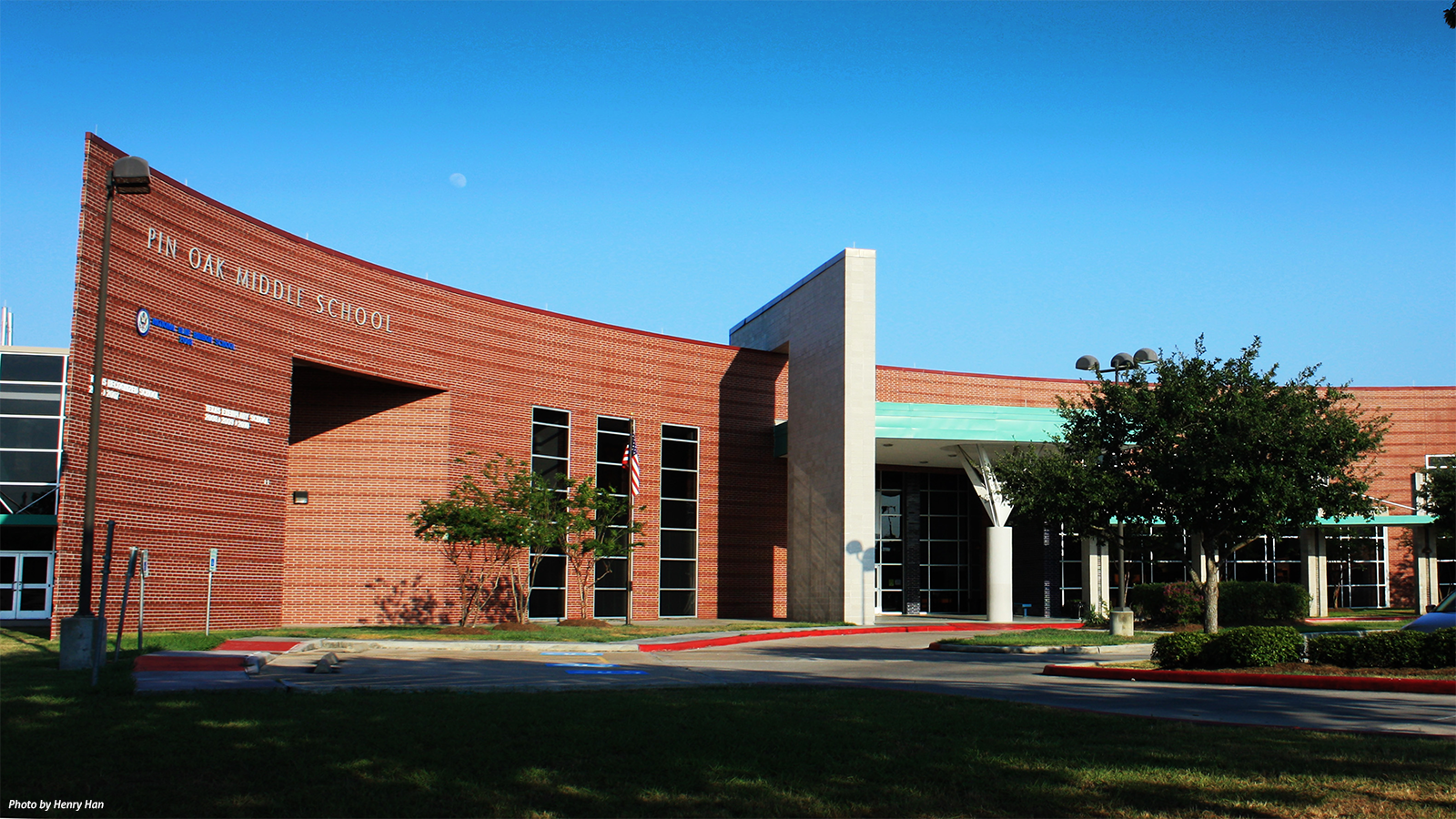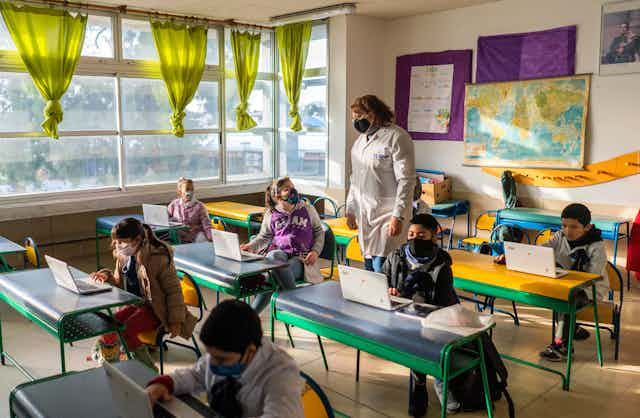How You Can Help Save Temecula Schools for Future Generations
How You Can Help Save Temecula Schools for Future Generations
Blog Article
The Impact of School Environments on Academic Success and Personal Wellness
The layout of academic rooms, including natural lights and ergonomic furnishings, can enhance students' concentration and convenience. How can colleges strategically improve these elements to better support their students?
Physical Layout and Layout
Just how does the physical layout and design of a school impact scholastic success? The arrangement and visual of an institution environment can substantially affect students' knowing results. A well-designed school layout advertises ease of movement, reduces distractions, and cultivates a feeling of safety and security and belonging. For example, large passages and clearly marked locations help with smooth changes between classes, lessening lateness and disruption. In addition, tactically put typical areas encourage social interactions, which are essential for emotional and social development.
Natural illumination and effective air flow systems are pivotal in boosting cognitive feature and decreasing absence. Researches have revealed that classrooms with enough natural light improve trainee focus and reduce sensations of sleepiness. Ergonomic furniture customized to pupils' requirements can prevent physical discomfort, permitting for prolonged emphasis and involvement in academic tasks.
Accessibility to outside areas and aesthetically pleasing surroundings also play a crucial role - Save Temecula Schools. Environment-friendly areas and well-maintained college premises offer possibilities for physical workout and mental leisure, both of which are necessary for preserving high levels of academic performance. Basically, a thoughtfully developed physical atmosphere can work as a driver for academic excellence, promoting an ambience that sustains both mentor and understanding
Class Ambience
A positive classroom ambience is basic to accomplishing scholastic success. An environment that cultivates a sense of safety, inclusivity, and mutual regard motivates trainees to involve even more proactively in their learning procedures. The atmosphere of a class, consisting of elements such as illumination, sound degrees, and seating arrangements, can considerably affect trainee concentration and motivation. A well-ventilated, well-lit class with minimal distractions can enhance cognitive function and reduce anxiety, consequently promoting better scholastic end results.
In addition, the classroom environment should support a society of partnership and open communication. They are much more most likely to engage deeply with the product and establish crucial believing skills when pupils feel comfortable sharing their ideas and asking concerns. Peer interactions and team tasks can enhance learning by fostering and offering diverse perspectives synergy
In addition, establishing constant regimens and clear assumptions can produce an organized setting that permits students to concentrate on their researches. By lessening uncertainty and giving a predictable structure, trainees can much better handle their time and responsibilities. Eventually, a favorable class ambience not only improves scholastic efficiency but also adds to the general well-being of students, preparing them for future instructional and individual endeavors.
Teacher-Student Relationships
Building on the value of a favorable class atmosphere, the relationships between pupils and instructors play a crucial duty in forming academic success. A healthy teacher-student relationship fosters a discovering atmosphere where pupils feel valued, understood, and supported, which significantly boosts their inspiration and interaction. When students regard their teachers as compassionate and approachable, they are most likely to participate actively in course and seek assistance when required, adding to a much deeper understanding of the subject matter.

This trust allows pupils to share their worries and concepts easily, fostering a collaborative discovering environment. In essence, strong teacher-student partnerships are a cornerstone of educational success, playing an important function in both academic achievement and individual development.
Peer Communications
Peer interactions substantially affect scholastic success by shaping a pupil's social and cognitive growth. Within the institution atmosphere, peer relationships function as a fundamental component for discovering and personal growth. Favorable peer interactions can boost a student's motivation and engagement in academic tasks with joint discovering and mutual assistance. When students work together in group settings, they exchange concepts, fix issues jointly, and create vital believing skills. Such communications foster a feeling of belonging and neighborhood, which is crucial for emotional wellness and academic determination.

Reliable peer communications also add to the growth of important life abilities, such as problem, participation, and interaction resolution. These social competencies are critical for both academic success and personal health, highlighting the importance of promoting favorable peer characteristics within the institution environment.
After-school Activities
Involving in after-school activities plays a crucial duty in a pupil's scholastic success and individual growth. These tasks, ranging from sporting activities teams to question clubs, supply students opportunities to sharpen valuable abilities such as management, time management, and teamwork. Research consistently suggests that trainees who take part in after-school activities have a tendency to accomplish greater scholastic performance. This connection is usually connected to the organized setting and the self-control called for to stabilize both scholastic and extracurricular dedications.
Additionally, extracurricular participation fosters a sense of go to these guys belonging and community, which is vital for individual wellness. Taking part in group tasks enables pupils to construct and enhance social media networks, enhancing their social and psychological intelligence. These interactions are crucial for creating social abilities that are useful in both scholastic and future specialist environments.
Furthermore, after-school activities give a constructive outlet for students to explore their rate of interests and passions past the basic educational program. This expedition can lead to the exploration of brand-new abilities and potential occupation paths, better inspiring pupils to engage more deeply in their academic job. In conclusion, the duty of extracurricular tasks expands beyond plain entertainment; they are integral to cultivating a holistic educational experience that advertises both scholastic success and personal development.
Final Thought
Altogether, the influence of college settings on both academic success and individual well-being is extensive. Attentively developed physical designs and class, in addition to positive teacher-student connections and useful peer communications, considerably enhance student motivation and interaction. Moreover, the presence of helpful instructors can reduce stress, cultivating a nurturing environment for holistic development. These components jointly highlight the significance of producing and preserving ideal institution settings for the advantage of trainees' personal and academic growth.
Ultimately, a positive class ambience not only boosts scholastic efficiency however also adds to the overall well-being of pupils, preparing them for future instructional and personal undertakings.

Report this page